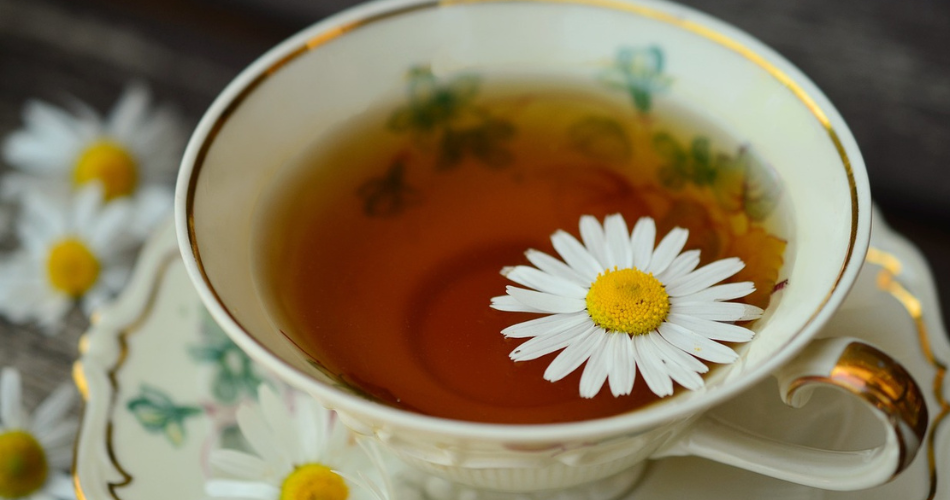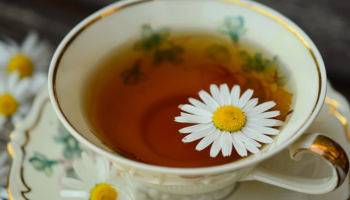
Hello plant enthusiasts! Today, we’re diving into the world of chamomile tea and its remarkable benefits for your house plants. Who would have thought that a cup of chamomile tea could be the superhero your leafy friends need to stay healthy and disease-free? Let’s unlock the secrets of chamomile tea and its incredible powers in preventing and treating common plant diseases.
Unveiling the Power of Chamomile:
Chamomile tea isn’t just a soothing bedtime drink; it’s a powerhouse with natural properties that can shield your plants from diseases. Packed with anti-fungal and anti-bacterial qualities, chamomile tea is here to revolutionize your plant care routine.
The Recipe for Chamomile Tea Elixir:
Creating your chamomile tea solution is as easy as making your morning cuppa. Here’s the simple recipe:
Ingredients:
- Chamomile tea bags or dried chamomile flowers
- Boiling water
Steps:
- Steep chamomile tea bags or dried flowers in boiling water, just as you would for your regular tea.
- Let the tea cool completely.
Using Chamomile Tea as a Preventive Measure:
- Guarding Against Damping Off:
- Damping off, the sneaky fungal disease that can harm your plants, is no match for chamomile tea. Use it as a preventive measure by making a solution from fresh or dried chamomile flowers. Spray the solution on your seedlings or soak your seeds before planting.
Understanding Damping Off:
Damping off is a group of fungal diseases that attack seedlings, causing rot in the stem and root tissues. Look out for yellowing leaves, wilting, and stunted growth – the telltale signs of damping off. This pesky condition thrives in wet, cold soil with poor drainage.
Preventing Damping Off with Chamomile Tea:
- Brew a Strong Batch:
- Make a robust chamomile tea by steeping fresh or dried chamomile flowers in hot water for up to 24 hours. This releases the active compounds that repel pests and control their populations.
- Spray Infested Plants:
- Transfer the chamomile tea to a spray bottle and apply it directly on infested plants, covering both the foliage and the soil around them.
- Time Your Spraying:
- To protect beneficial insects like bees and butterflies, spray chamomile tea early in the morning or late in the evening when they are less active.
- Repeat as Needed:
- Depending on the severity of the infestation, repeat the chamomile tea spray every few days to keep pests in check and promote healthy plant growth.
- Eco-Friendly Solution:
- Unlike chemical insecticides that harm the environment, chamomile tea is a natural and eco-friendly alternative. You’re not just protecting your plants; you’re contributing to a healthier garden ecosystem.
Creating a Chamomile Fungicide Spray:
Making a chamomile fungicide spray is simple and effective. Here’s a quick guide:
- Gather Chamomile Flowers:
- Start by collecting fresh or dried chamomile flowers. Rinse fresh flowers gently to remove any dirt.
- Brewing the Tea:
- Boil water and steep the chamomile flowers for about 10 minutes. Strain the flowers to get a golden liquid.
- Into the Spray Bottle:
- Pour the chamomile liquid into a spray bottle. Your homemade chamomile fungicide spray is ready!
- Application:
- Spray the chamomile fungicide directly on seedlings or the affected soil. Repeat every few days for optimal results.
Other Diseases Chamomile Can Treat:
- White Mold:
- Spray chamomile tea on the soil and seedlings to eliminate fungal spores causing white mold.
- Powdery Mildew:
- Combat powdery mildew by applying a strong brew of chamomile tea to affected plants’ foliage every few days.
Using Chamomile Fungicide Preventatively:
- Vegetable Gardens:
- Spray chamomile tea on the entire vegetable garden to prevent fungal diseases and repel insect pests.
- Apple Trees:
- Protect apple trees from diseases by spraying chamomile tea in the dormant season. This creates a protective layer against fungal growth.
- Hygiene for Seeds:
- Soak older seeds in chamomile tea before planting to prevent potential fungal diseases.
- Ongoing Care:
- As seedlings mature, continue using chamomile tea as a preventive measure by watering the plants with a diluted solution.
Benefits of Chamomile Tea for Plant Health:
Chamomile tea isn’t just about preventing diseases; it’s a holistic solution for overall plant health.
- Promotes Seed Germination:
- Softens seed casings, aiding faster and more successful germination.
- Natural Insecticide:
- Controls pests without harming beneficial insects, contributing to a balanced garden ecosystem.
- Calming Effects:
- Just as it relaxes us, chamomile tea promotes overall plant well-being, helping them withstand environmental stressors.
How to Grow and Harvest Chamomile:
- Start Early:
- Begin growing chamomile from seeds in early spring for optimal results.
- Dedicated Bed:
- Chamomile plants thrive when they have their dedicated bed, allowing them to grow and spread freely.
- Harvesting:
- Harvest chamomile flowers when fully opened, about two months after planting, by snipping them just above the soil line.
- Leaves Too:
- Don’t forget about the leaves! Harvest them for culinary delights or skincare preparations.
Medicinal Benefits of Chamomile:
- Calming Effects:
- Known for its calming properties, chamomile tea promotes relaxation and improved sleep quality.
- Treats Various Conditions:
- Recognized by medical authorities for treating conditions like indigestion and colic.
- Ancient Healing:
- Cherished by ancient civilizations for its remarkable healing properties.
- Wide Range of Benefits:
- Lowers blood pressure, reduces swelling and inflammation, boosts immunity, and provides relief from discomfort caused by various conditions.
Chamomile tea isn’t just a beverage; it’s a game-changer for your plants. From preventing diseases to promoting overall health, chamomile tea is a natural and effective ally in your gardening journey. Embrace the magic of chamomile, and watch your indoor garden thrive with vitality. Happy gardening!
Can I water my bonsai with chamomile tea?
Using chamomile tea to water your bonsai can have both advantages and potential drawbacks. Here are some considerations:
Advantages:
- Mild Antifungal Properties: Chamomile tea is known for its mild antifungal properties. Using it as a watering solution may help prevent or control certain fungal issues in the soil.
- Gentle Nutrients: Chamomile tea contains trace nutrients that can be beneficial for plant health in moderation. It provides a mild and organic supplement.
Considerations:
- Dilution is Key: If you choose to use chamomile tea, it’s crucial to dilute it significantly with water. Pure chamomile tea may be too concentrated and could potentially harm the bonsai due to its natural compounds.
- Frequency: While chamomile tea can be used occasionally, it should not replace regular watering with plain water. Bonsai trees have specific water requirements, and using chamomile tea too frequently might disrupt the balance.
Drawbacks:
- pH Considerations: Chamomile tea has a slightly acidic pH. While this can be beneficial for some plants, not all bonsai trees prefer acidic conditions. It’s important to know the pH preferences of your specific bonsai species before using chamomile tea.
- Possible Allergies: Some plants may be sensitive to chamomile or its constituents. Before using chamomile tea, observe your bonsai’s reaction to a small amount to ensure it doesn’t cause any adverse effects.
Alternative: Instead of chamomile tea, you might consider using a balanced, diluted liquid fertilizer specifically designed for bonsai trees. This ensures that your bonsai receives essential nutrients without the risk of unintended side effects.
FAQ:
- What does chamomile do for the body?
- Answer: Chamomile has anti-inflammatory and antioxidant properties, promoting relaxation, improved sleep, and digestive health.
- Who should not drink chamomile tea?
- Answer: Individuals allergic to ragweed or those taking blood thinners should avoid chamomile. Consult a doctor if pregnant or nursing.
- Does chamomile tea make you sleepy?
- Answer: Yes, chamomile tea is known for its mild sedative effects, aiding in relaxation and promoting better sleep.
- Is it OK to drink chamomile tea every day?
- Answer: Yes, moderate daily consumption of chamomile tea is generally considered safe and may offer various health benefits.
- Is chamomile good for belly fat?
- Answer: While chamomile may aid digestion and reduce inflammation, it is not a direct solution for belly fat. A balanced diet and exercise are key.
- Does chamomile tea flush toxins?
- Answer: Chamomile tea may support liver function and digestion but does not have a direct detoxifying effect on toxins.
- Does chamomile help with weight loss?
- Answer: Chamomile indirectly supports weight loss by promoting better digestion and reducing stress, but it’s not a direct weight loss remedy.
- How long does it take chamomile tea to kick in?
- Answer: Chamomile tea’s calming effects can be felt within 30 minutes to an hour after consumption, promoting relaxation and aiding in sleep.

